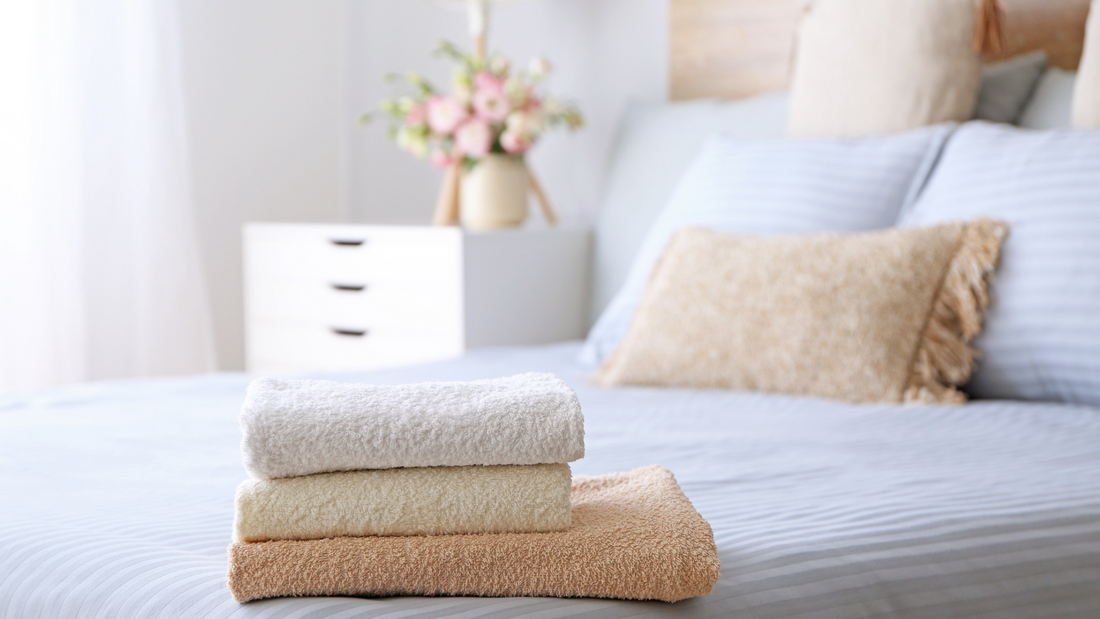If you've ever had allergies, you know how miserable they can be. They can affect your eyes, nose, and throat, making it difficult to sleep at night. In addition to causing sneezing and a runny nose, allergic reactions can cause itching and coughing—which are also common symptoms of an interrupted or poor-quality night's sleep. If you're thinking about ways to prevent allergies from interrupting your sleep, here are some tips:
Wash your bedding more frequently.
- Wash your sheets and blankets weekly.
- Wash your pillowcase every 2-3 days.
- Wash the mattress cover every 6 months, or whenever it starts to look dirty or worn out.
All fabrics should be washed in hot water (130 degrees Fahrenheit) with detergent that is free of perfumes and dyes. You can also add 1/4 cup of vinegar per load for an extra boost!
Invest in a hypoallergenic mattress and pillows.
If you're serious about preventing allergies from interrupting your sleep, invest in a hypoallergenic mattress and pillows. Not only will these items help keep dust mites at bay, but they also trap body heat to keep you warmer on cooler nights. Finally, if you suffer from asthma-related allergy symptoms like sneezing or congestion during the day (or even night), consider using an air purifier in your room or home that can clean allergens out of the air before they get inside.

Use an air purifier to clean allergens out of the air.
If you're allergic to dust, pollen and mold spores in your home, an air purifier can help clear the air. The best kind of filter is a HEPA (high-efficiency particulate air) filter that removes allergens from the air. A HEPA filter is a type of air filter used to remove dust from the air. You can buy these types of filters for your home or office, which will help keep dust mites out of your home and reduce allergy symptoms caused by exposure to them. If you don't want to invest in one of these devices right now, consider purchasing dust mite covers for your mattress and pillows instead! These covers trap any unwanted particles within their fabric so they never make their way onto your bedding again--and thus into contact with sensitive areas like eyes or noses where they might cause discomfort later down the road."
Keep pets off your bed, blankets, and pillows.
- Keep pets off your bed. Not only can pets be a source of allergens in the home, but they can also shed allergens onto your bedding and pillows, which may then cause allergic reactions during sleep.
- Wash your sheets regularly to remove pet dander from them. If you have a dog or cat, consider buying hypoallergenic sheets that are designed specifically for people who suffer from pet allergies.
- Put down an allergy-resistant mattress pad over top of your mattress (or replace it entirely) before going to sleep; these pads are designed with materials that prevent dust mites and other allergens from getting through to you while sleeping.
Allergic reactions can interrupt sleep, but you can take action to keep them away.
Allergies can cause sleep problems, but you can take action to keep them away. Allergies are a common problem that affects millions of people around the world every year. In fact, allergies affect about 50 million Americans each year and cause more than 200 million visits to doctors' offices and health clinics for treatment.
Allergic reactions can be caused by many factors:
- Dust mites (tiny bugs found in your mattress)
- Mold spores (found in damp areas like bathrooms)
- Pollen from trees or grass (which is why some people experience seasonal allergies) If you have any of these things in your home or bedroom, it could be causing your symptoms!
The most important thing to remember is that sleep is crucial for your health and well-being, so it's worth taking the time to make sure you're sleeping in a clean environment. If you have allergies or asthma, it's especially important that you take steps to keep allergens out of your bedroom so that your body can rest peacefully at night--and hopefully wake up feeling refreshed!

